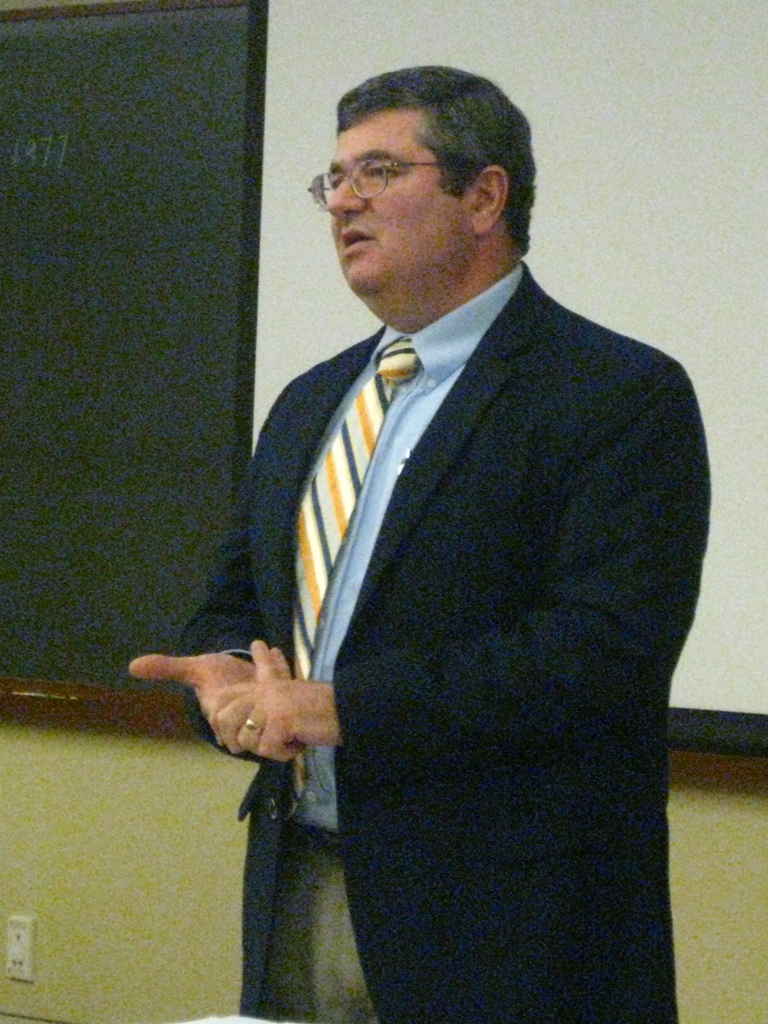

The Campus Challenge Committee held its kickoff meetings on Monday and Tuesday to mark the official beginning of the College’s participation in the 2011-2012 Interfaith and Community Service Campus Challenge. In May 2011, the White House Office of Faith-based and Neighborhood Partnerships (FSNP) invited college campuses to take up this challenge, designed to increase social cohesion by having groups and individuals work across their differences, while maximizine social capital by having networks of people and groups working together on a common project. Each campus is challenged to address a specific societal need, and the College has chosen the alleviation of poverty and hunger.
The Challenge Committee has determined a concrete goal for the challenge of “75-10-10-25.” Seventy-five percent of college faculty, staff and students will participate in the challenge by gathering 10 tons of food and raising $10,000 for the Amherst Survival Center. Additionally, 25 percent of faculty, staff and students will participate in some form of interfaith engagement.
Associate Dean of Faculty Rick Griffiths pointed out that participation in this challenge is a means of fulfilling the College’s mission statement, which concludes with: “[Amherst] graduates link learning with leadership — in service to the College, to their communities and to the world beyond.” Griffiths noted that the mission statement “does not say that Amherst teaches service or teaches morals, but it simply says that our graduates do learn service.”
Director of Religious Life Dr. Paul Sorrentino said that he hopes “every single department on campus — faculty, staff and students — and every student group will participate in some way in the challenge.” Sorrentino hopes each department or group will think creatively about how they might best address “some particular problem with their combination of skills.”
Sorrentino also stressed the importance of the College’s mission, using it to urge students to participate in the Campus Challenge, primarily through their own initiative.
“This [challenge] is not at all something which is driven by the committee,” he said. “If everyone just waits around for the committee, not much is going to happen. We will organize a few different events, but what we’re really looking for is for the campus as a whole to take up this challenge.”
Sorrentino concluded his portion of the kickoff with two motivating questions. “Can we as a college — faculty, staff and students — rise up to address the issues of poverty and hunger in our country and specifically in our community?” he asked. “Is that something that each of us — our departments and organizations — can take something on to address?”
As the College will be working closely with the Amherst Survival Center for this challenge, the kickoff concluded with a speech by Chair of the Board of the Amherst Survival Center, Jan Eidelson. Eidelson spoke mainly about the nature of the Survival Center and the 4,000 community members who regularly patronize it. Fifty of these patrons are homeless; however, the majority are “working poor” who rely on the Survival Center for food, clothing and medical care, which they might not otherwise be able to afford.
Eidelson expressed her gratitude for the contribution that the College will give to the Survival Center through this challenge.
“The Survival Center has gained 500 new families within the past year, so right now our food pantry is very empty. The timing of this could not be better,” she said.
More information on the Interfaith and Community Service Campus Challenge, as well as a list of upcoming events connected with the challenge, can be found at amherst.edu/go/campus challenge.